The World's Biggest Companies Over the Past 20 Years
Is Apple, the world's most valuable company, on its way toward an unprecedented market capitalization of $1 trillion?

Profit and prosper with the best of Kiplinger's advice on investing, taxes, retirement, personal finance and much more. Delivered daily. Enter your email in the box and click Sign Me Up.
You are now subscribed
Your newsletter sign-up was successful
Want to add more newsletters?

Delivered daily
Kiplinger Today
Profit and prosper with the best of Kiplinger's advice on investing, taxes, retirement, personal finance and much more delivered daily. Smart money moves start here.

Sent five days a week
Kiplinger A Step Ahead
Get practical help to make better financial decisions in your everyday life, from spending to savings on top deals.

Delivered daily
Kiplinger Closing Bell
Get today's biggest financial and investing headlines delivered to your inbox every day the U.S. stock market is open.

Sent twice a week
Kiplinger Adviser Intel
Financial pros across the country share best practices and fresh tactics to preserve and grow your wealth.

Delivered weekly
Kiplinger Tax Tips
Trim your federal and state tax bills with practical tax-planning and tax-cutting strategies.

Sent twice a week
Kiplinger Retirement Tips
Your twice-a-week guide to planning and enjoying a financially secure and richly rewarding retirement

Sent bimonthly.
Kiplinger Adviser Angle
Insights for advisers, wealth managers and other financial professionals.

Sent twice a week
Kiplinger Investing Weekly
Your twice-a-week roundup of promising stocks, funds, companies and industries you should consider, ones you should avoid, and why.

Sent weekly for six weeks
Kiplinger Invest for Retirement
Your step-by-step six-part series on how to invest for retirement, from devising a successful strategy to exactly which investments to choose.
Is Apple, the world's most valuable company, on its way toward an unprecedented market capitalization of $1 trillion? Or is Mapplegate, the fiasco surrounding the error-filled map app on Apple's new iPhone, a sign that the aura surrounding Apple and its seemingly bulletproof stock is starting to dissipate. If Apple were to fall from its lofty perch, it certainly wouldn't be a shock, because, let’s face it, it's tough to hold on to the top spot. Companies go in and out of fashion. Stock prices rise and fall. Consider that Microsoft became number one in September 1998 when its market value was a lofty $282 billion; as of October 3, it's valued at $250 billion. In September 1993, General Electric hit the alpha-spot with $84 billion; its current market cap is $242 billion.
Over the past 20 years, seven companies have held the number-one spot in market value. How did they make it to the top, why did they fall, and which companies supplanted them? Have a look. (Please note: the periods at the top reflect broad ranges and don't take into account brief reversals due to small, temporary changes in share prices.)

Philip Morris (MO)
When it was on top: March 1992.
The company's current name, Altria Group, wasn't coined until 2003. Marlboro remains the world's best-selling cigarette brand to this day.
Mike Miles was riding the bull when he took over as CEO in late 1991. Under his predecessor, Hamish Maxwell, Philip Morris had generated five consecutive years of earnings growth of at least 20% annually, thanks in part to acquisitions of General Foods in 1985 and Kraft in 1988. But domestic tobacco sales were slowing amid changing attitudes toward smoking. A flood of tobacco litigation also ensued.
Who pushed it aside: ExxonMobil, from April 1992 through October 1992 (more about Exxon later).

Wal-Mart Stores (WMT)
When it was on top: November 1992 through January 1993.
Twenty years ago, Wal-Mart ascended to corporate champ. The company was ringing in record sales and earnings and expanding across the country with new stores, supercenters and Sam's Clubs. But the stock ran out of steam in March 1993 and languished for the next four years.
Some blame the April 1992 passing of founder Sam Walton. Some analysts believeoverexpansion may have been an issue, too. To boost growth in 1994, the company doubled the number of its supercenters -- those now-ubiquitous discount store/grocery one-stop shopping concepts -- and increased by two-thirds the number of Sam's Clubs, its warehouse stores. But sales growth at existing stores, the traditional figure used to measure retailers, had dropped to 6% from 11% the year before. The toll was enough to unseat Wal-Mart.
Who pushed it aside: ExxonMobil, for just a few months, from January to April 1993; then AT&T (more on Exxon later).

AT&T (T)
When it was on top: May 1993 through August 1993.
This wasn't Ma Bell's first time on the throne -- she'd been queen of the markets in the early 1980s. That was before the phone giant (with a little nudging from the U.S. Department of Justice) divested its local operating companies in 1984 while retaining its manufacturing arm and long-distance operations. The breakup resulted in the creation of seven regional holding companies (aka Baby Bells), as well as a six-year stretch of steadily declining long-distance rates.
Declining toll-call revenues forced AT&T to seek other avenues of growth. In 1991, it bought computer maker NCR in anticipation of growing synergies between computing and communications. And in August 1993, AT&T announced the acquisition of McCaw Cellular Communications, then the country's largest provider of cell-phone service.
Who pushed it aside: General Electric.
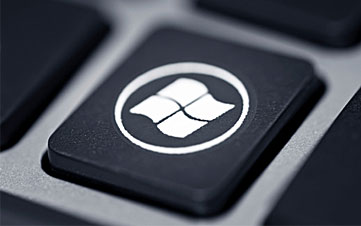
General Electric (GE)
When it was on top: September 1993 to August 1998, with a brief interruption in 1994, when AT&T reclaimed the top spot, and subsequent reigns occurring periodically from 2000 to 2005.
These were the reaping years for Jack Welch. He had been CEO of GE since 1981, and the fruits of his reign ripened in the 90s. He'd spent the previous decade slimming down the company and redefining it -- laying off employees, selling off manufacturing businesses and buying up financial-services firms. By the mid 90s, the conglomerate was in full swing with Six-Sigma -- the management strategy that, among other things, stressed rewarding winners and rejecting losers. General Eclectic became a market darling -- Fortune called it one of the world's "most admired companies" and Welch was named "manager of the century." Welch left the company in 2001.
Who pushed it aside: Microsoft.

Microsoft (MSFT)
When it was on top: September 1998 through March 2000.
Microsoft's ascent was fueled by 23 consecutive years of record sales and earnings (the company was founded in 1975; it went public in 1986). The colossus of Redmond had its share of lovers and haters. In June 1998, it launched its Windows 98 operating system in 40 countries. The software would end up on the overwhelming majority of new personal computers. But earlier that year, the U.S. Department of Justice filed an antitrust suit against Microsoft. About that time, the tech-stock boom of the late 1990s, fueled by the Internet and concerns about the changeover on computers to the year 2000, was accelerating.
In December 1999, a few months before the bubble burst, Microsoft shares peaked at a split-adjusted price of $58.72. The stock had doubled in 12 months and was trading at a whopping 70 times earnings (its historic average price-earnings ratio was about 30). When the party ended, Microsoft's stock suffered. It ceded its crown of most-valuable company in April 2000 -- only to regain it in June 2002 and hold it (most of the time) until September 2003. But the company has never fully recovered from tech bubble popping. As of October 3, Microsoft sells at ten times estimated 2013 earnings.
Who pushed it aside: GE, in its post-Welch days, under his successor, Jeffrey Immelt. But in 2005, GE was ousted again, this time by ExxonMobil.

ExxonMobil (XOM)
When it was on top: February 2005 through August 2011.
Think rising oil prices, which hit an all-time high in 2008. That year, the company clocked record revenues and profits. ExxonMobil has ranked among the ten largest companies in the country for decades. It remains today the world's largest publicly traded energy company. The firm's history stretches back more than 125 years and includes well-known brands long-since folded into the current incarnation, including Standard Oil, MobileOil, Esso, Mobile and Exxon. But falling commodity prices have hurt ExxonMobil's stock lately, making way for another company to be crowned king.
Who pushed it aside: Apple, though Exxon briefly reclaimed the number-one spot in late 2011.

Apple (AAPL)
When it was on top: September 2011 through today.
Walk the streets, sit in a restaurant, ride the train -- wherever you go, you'll see people using iPhones or iPads (or both). Wildly popular products explain why Apple has climbed to the top of the heap. The company's profits have grown at a stunning annualized pace of 59% over the past ten years, and it sits on an astounding $117 billion in cash. Apple's market value of more than $620 billion exceeds that of its nearest rival, ExxonMobil, by more than $200 billion.
Who pushed it aside: ???????

Profit and prosper with the best of Kiplinger's advice on investing, taxes, retirement, personal finance and much more. Delivered daily. Enter your email in the box and click Sign Me Up.

Nellie joined Kiplinger in August 2011 after a seven-year stint in Hong Kong. There, she worked for the Wall Street Journal Asia, where as lifestyle editor, she launched and edited Scene Asia, an online guide to food, wine, entertainment and the arts in Asia. Prior to that, she was an editor at Weekend Journal, the Friday lifestyle section of the Wall Street Journal Asia. Kiplinger isn't Nellie's first foray into personal finance: She has also worked at SmartMoney (rising from fact-checker to senior writer), and she was a senior editor at Money.
-
 Look Out for These Gold Bar Scams as Prices Surge
Look Out for These Gold Bar Scams as Prices SurgeFraudsters impersonating government agents are convincing victims to convert savings into gold — and handing it over in courier scams costing Americans millions.
-
 How to Turn Your 401(k) Into A Real Estate Empire
How to Turn Your 401(k) Into A Real Estate EmpireTapping your 401(k) to purchase investment properties is risky, but it could deliver valuable rental income in your golden years.
-
 My First $1 Million: Retired Nuclear Plant Supervisor, 68
My First $1 Million: Retired Nuclear Plant Supervisor, 68Ever wonder how someone who's made a million dollars or more did it? Kiplinger's My First $1 Million series uncovers the answers.
-
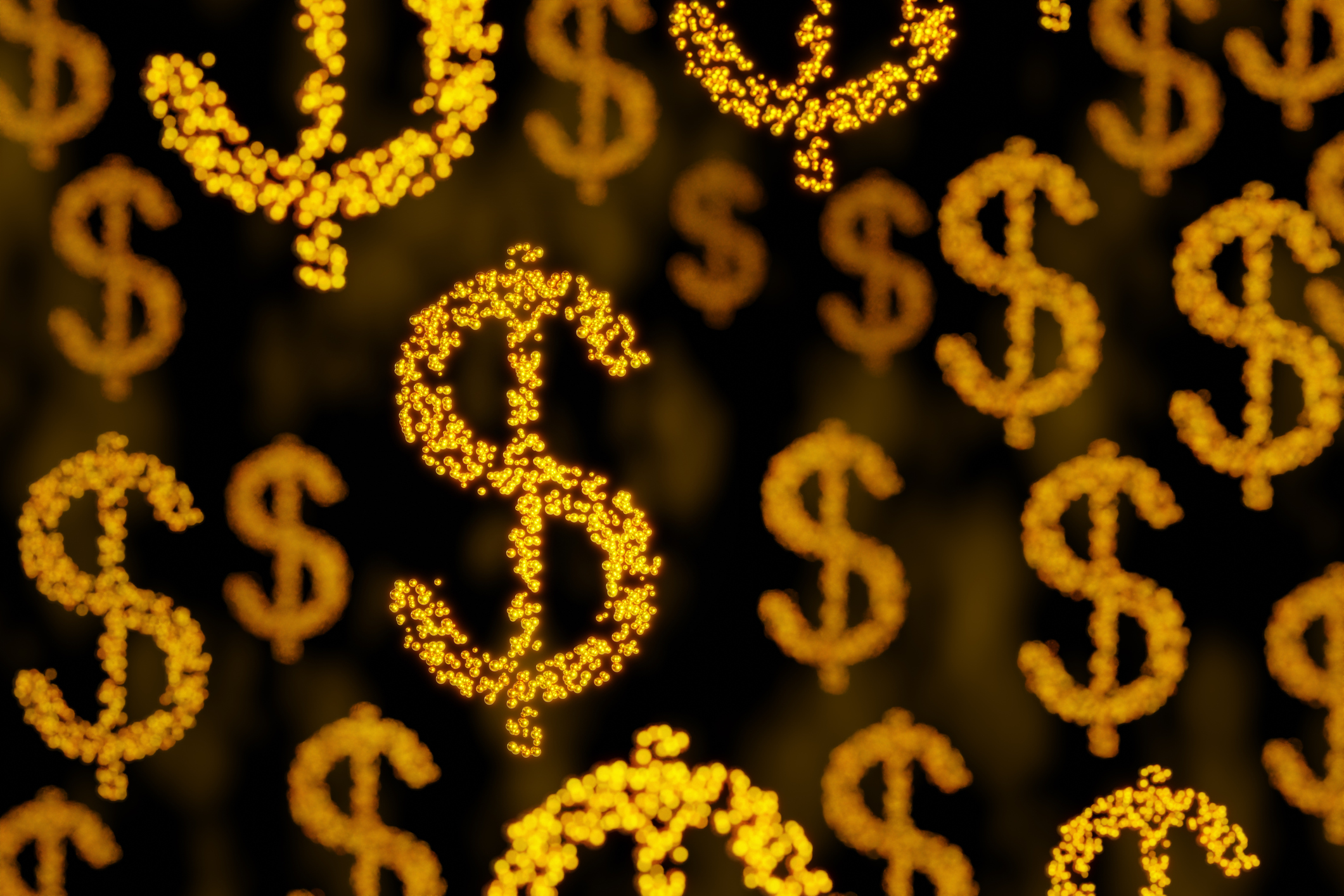 Why I Trust These Trillion-Dollar Stocks
Why I Trust These Trillion-Dollar StocksThe top-heavy nature of the S&P 500 should make any investor nervous, but there's still plenty to like in these trillion-dollar stocks.
-
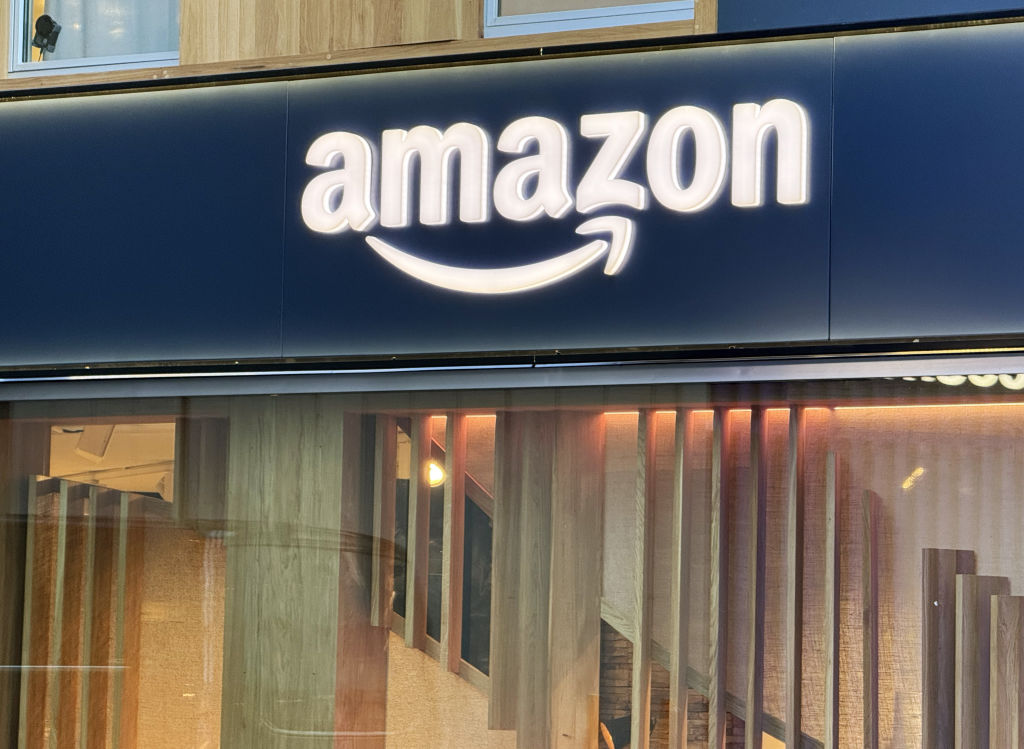 Stocks Close Out Strong Month With Solid Amazon Earnings: Stock Market Today
Stocks Close Out Strong Month With Solid Amazon Earnings: Stock Market TodayAmazon lifted its spending forecast as its artificial intelligence (AI) initiatives create "a massive opportunity."
-
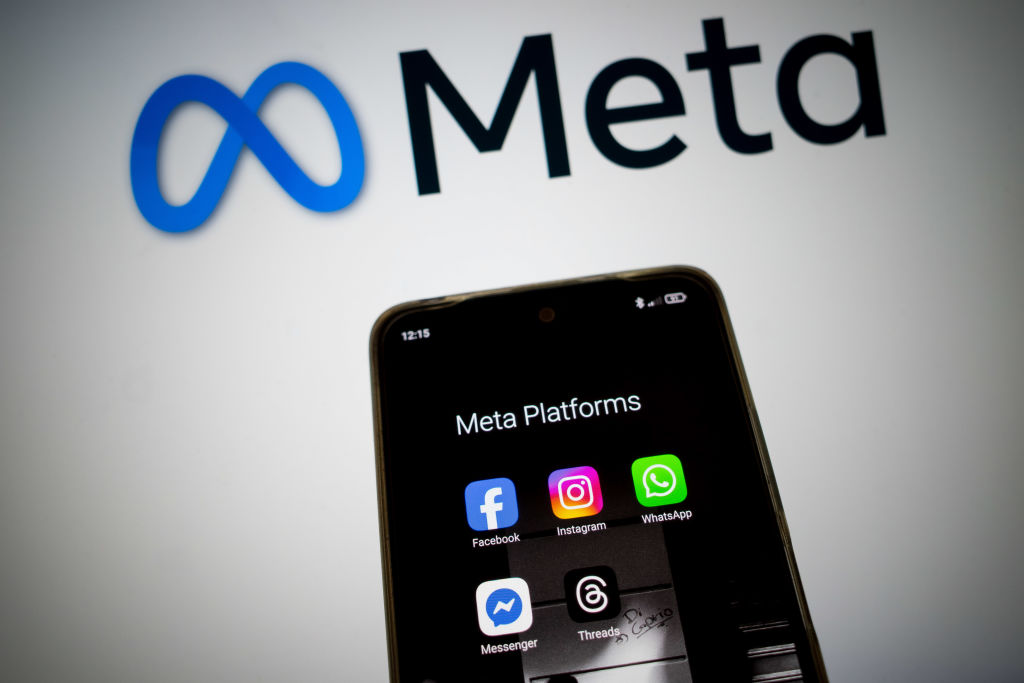 Stocks Sink with Meta, Microsoft: Stock Market Today
Stocks Sink with Meta, Microsoft: Stock Market TodayAlphabet was a bright light among the Magnificent 7 stocks today after the Google parent's quarterly revenue topped $100 billion for the first time.
-
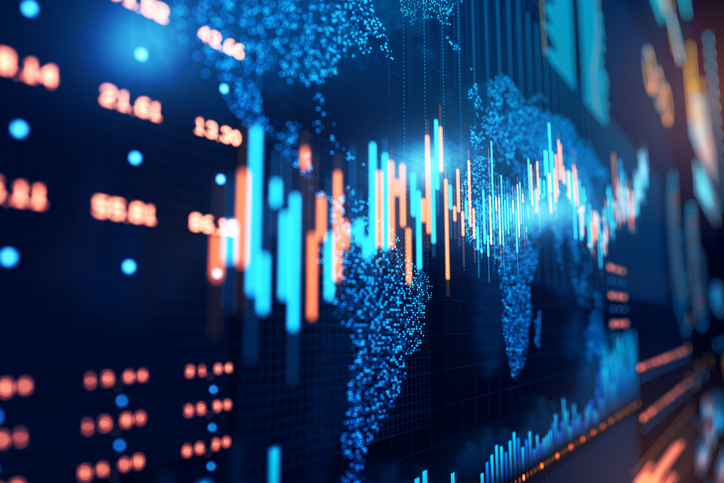 Stocks Slip Ahead of July CPI Report: Stock Market Today
Stocks Slip Ahead of July CPI Report: Stock Market TodayThe latest inflation updates roll in this week and Wall Street is watching to see how much of an impact tariffs are having on cost pressures.
-
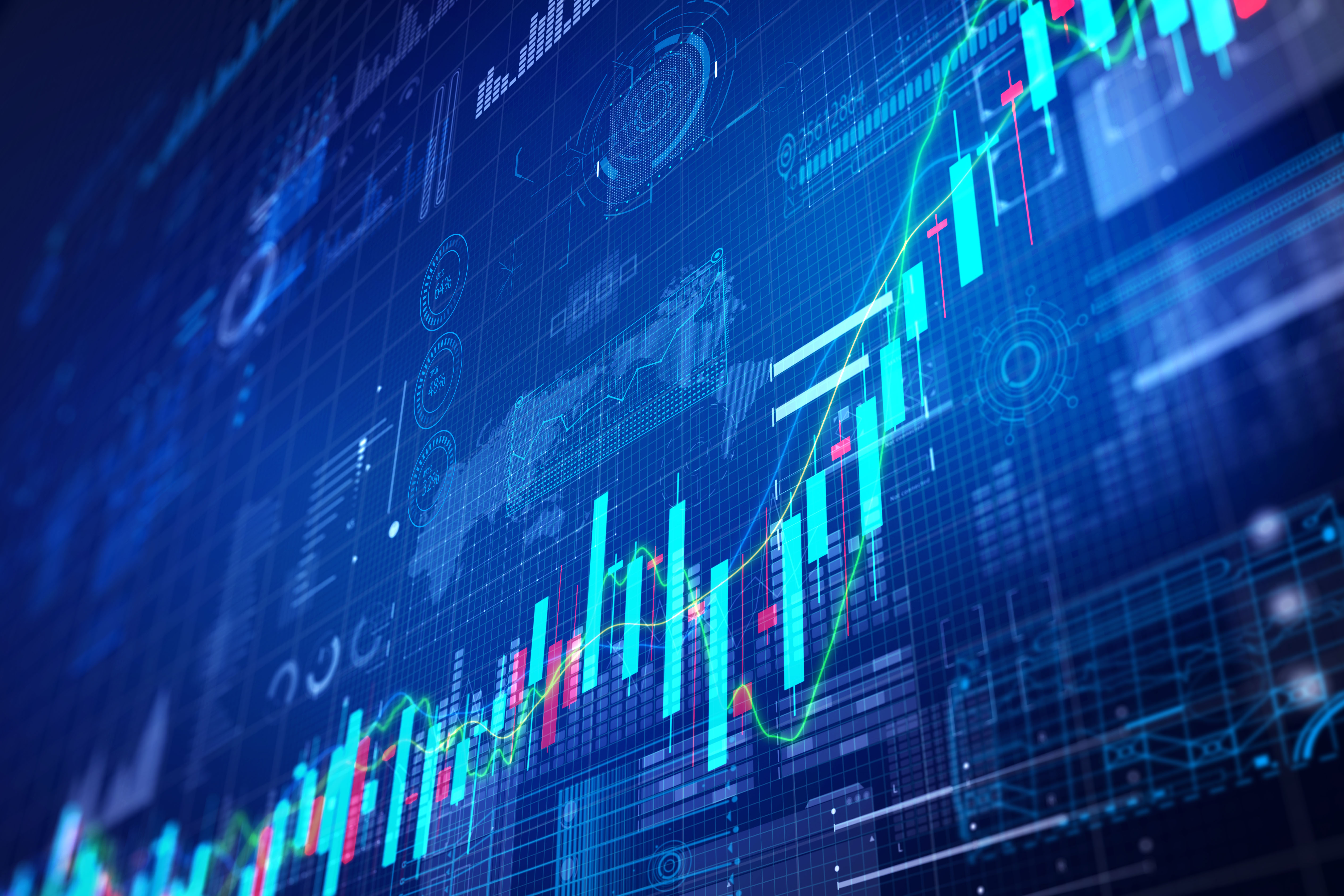 Nasdaq Ends the Week at a New High: Stock Market Today
Nasdaq Ends the Week at a New High: Stock Market TodayThe S&P 500 came within a hair of a new high, while the Dow Jones Industrial Average still has yet to hit a fresh peak in 2025.
-
 Stocks Swing Lower as Eli Lilly, Fortinet Spiral: Stock Market Today
Stocks Swing Lower as Eli Lilly, Fortinet Spiral: Stock Market TodayThe main indexes finished well off their session highs after a disappointing batch of corporate earnings reports.
-
 Stocks Rally on Apple Strength: Stock Market Today
Stocks Rally on Apple Strength: Stock Market TodayThe iPhone maker will boost its U.S. investment by $100 billion, which sent the Dow Jones stock soaring.
-
 The Best Stocks of the Century
The Best Stocks of the CenturyAs we near the 25-year mark, we looked at which stocks have returned the most. Here are the 10 best stocks of the century so far.
